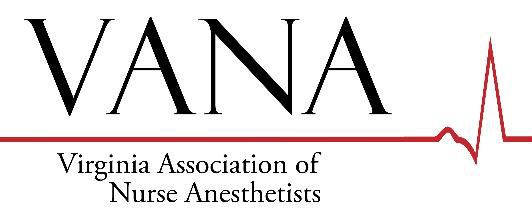Column: A simple change can improve health care
Note: This column originally published in the Richmond-Times Dispatch on Jan. 21, 2023.
By Meredith Joyner
Virginians in every corner of the commonwealth risk having surgery – even emergency surgery – delayed because the available anesthesia experts are being underutilized.
In today’s challenging health care environment, our legislators could address this through a simple change in the language regulating certified registered nurse anesthetists (CRNAs). Instead of requiring that CRNAs be supervised by a physician, podiatrist or dentist, lawmakers could require that CRNAs work in consultation with these medical colleagues.
Virginia is one of only a handful of states to continue having supervision language as a requirement for CRNAs, making it an outlier. By modernizing the language that governs the practice of CRNAs to allow for consultation, legislators would help hospitals and surgical facilities fully use all of the anesthesia experts available to them, resulting in care for more patients needing surgery.
Not only is the current supervision requirement unnecessary, it’s inconsistent throughout the commonwealth. In military hospitals across the country and in Virginia, CRNAs practice to the full extent of their training and education and without physician supervision. Many facilities in Virginia have already decided to efficiently maximize their workforce by allowing CRNAs to independently administer anesthesia, while interpreting supervision to mean oversight provided by a physician with no specialized training in anesthesia.
This interpretation creates unfounded liability issues and undermines the vast expertise of the CRNA. Furthermore, in hospitals that require a physician anesthesiologist to oversee one or more CRNAs, costs are driven up for facilities and patients and can often delay surgeries if a physician anesthesiologist isn’t available. Given the expertise of CRNAs and physician anesthesiologists, facilities should be able to choose the anesthesia delivery model that best fits their patients’ needs and should not be held hostage by unclear language.
Legislators need to modernize this language, which is more reflective of current day practice around the nation, by passing legislation allowing CRNAs to work in consultation with their medical partners. After all, CRNAs get the same training and use the same textbooks and techniques as our physician anesthetist counterparts. CRNAs have been providing high-quality, cost-effective anesthesia care for more than 160 years – in fact, nurse anesthetists are the original anesthesia providers.
Virginia is home to more than 2,000 CRNAs and 350 student nurse anesthetists. CRNAs care for patients in surgeries and delivery rooms, ambulatory surgical centers, military and veterans’ facilities, and dental and pain management offices. Each CRNA has earned a bachelor’s degree in nursing and has a master’s or doctoral degree. All have worked an average of two-and-a-half years in an intensive care unit (ICU) before attending a certified anesthesia program. Even when working with a physician anesthesiologist, CRNAs administer anesthesia during surgery, stay with the patient throughout post-operative recovery and devise a plan to handle any pain after surgery.
Supervision requirements affect the workforce shortage. A 2021 article in Nursing Economic$ found that by increasing CRNA-only practices by 10%, we can reduce the anesthesia provider workforce shortage by 40%. Another way to address the workforce shortage is by making Virginia a more inviting environment for CRNAs to practice, possibly reducing the number of CRNAs leaving for states where they have full practice authority. Retaining the 350 nurses training at Virginia universities would be a primary factor in alleviating the workforce shortage.
While many facilities are operating under razor-thin margins and vulnerable to closure, the supervision requirement drives up costs statewide for hospitals, surgical centers and other health care facilities. It’s time to change Virginia’s supervision requirement to consultation. Legislators need to act now and put Virginia in line with the majority of the nation and recognize CRNAs as full partners in caring for Virginians needing surgery.
Meredith Joyner is president of the Virginia Association of Nurse Anesthetists. Contact her at [email protected].

